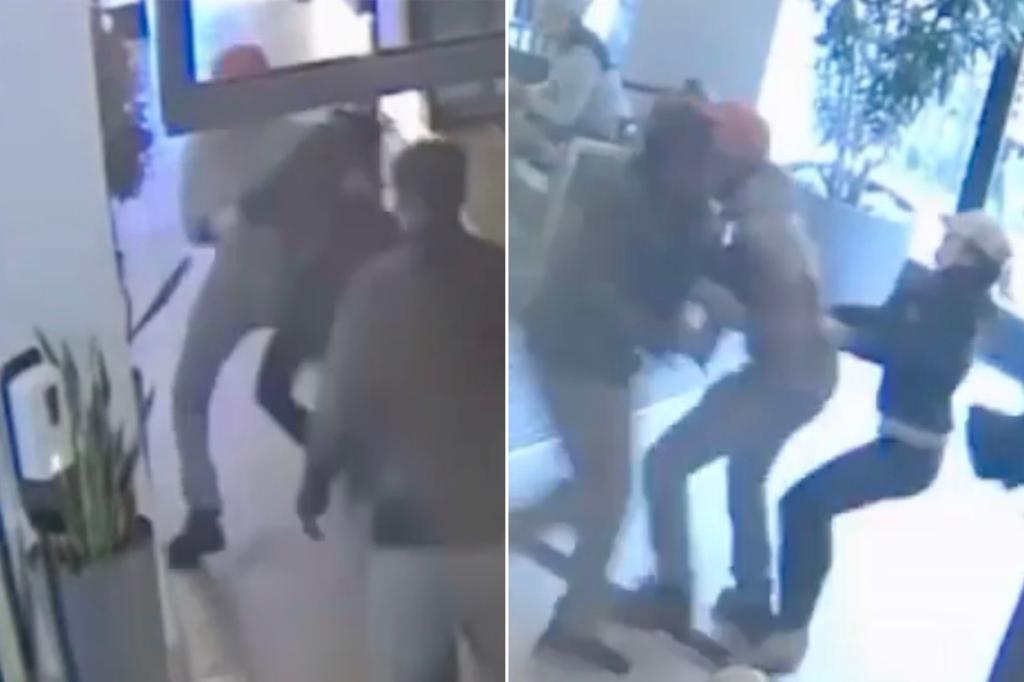Karens
“Soho Karen”: Legal Battles, Social Impact, And Calls For Change

Legal Developments And Plea Bargain
The notorious “SoHo Karen,” Miya Ponsetto, pled guilty to a felony hate crime for falsely accusing and attacking a Black teenager over a lost phone. Ponsetto changed his plea from not guilty to second-degree illegal confinement as a hate crime, second-degree aggravated harassment, and endangering a child in July 2021 after negotiating with the District Attorney in April 2022.
According to TMZ, Ponsetto may avoid jail if she lives a “law-abiding life” for two years, fulfills her probation, and attends treatment. She may re-plead to second-degree aggravated harassment after this term. Failure to comply might result in a four-year jail sentence.
On Saturday, December 26, the woman in this video falsely accused an innocent 14-year-old teenager of stealing her cellphone. She then proceeded to physically attack him and fled the location before police officers arrived on scene. pic.twitter.com/qtZZWetBWH
— NYPD Chief of Department (@NYPDChiefOfDept) December 31, 2020
Background And Past Legal Issues
Before hate crime accusations, Ponsetto was scheduled to face grand larceny, attempted robbery, attempted assault, and child endangerment charges. Her acts were recorded on viral video, leading to these accusations. Last December, the 22-year-old aggressively followed and shouted at 14-year-old Keyon Harrold Jr. in the Arlo SoHo lobby. She attempted to attack the youngster on a security video. Ponsetto’s counsel called the allegations “absurd” and accused then-Manhattan District counsel Cy Vance of “perverting” justice.
Disputable Statements And Civil Suit
Ponsetto later denied racial profiling against Harrold in a CBS This Morning interview with Gayle King. She apologized to the family and said she might have done better. She said the teenager’s father assaulted her throughout the event. Ventura County police detained Ponsetto at her California home in January, changing the judicial processes. Officers had to force her from a vehicle during the arrest owing to her resistance.
Harrold’s family sued Ponsetto, the hotel, and the manager, compounding her legal issues. The action claims assault, mental anguish, and New York human rights breaches. The “SoHo Karen” court case raises crucial considerations regarding responsibility and justice in circumstances of false charges and racial profiling.
Outrage And Social Media Impact
“SoHo Karen” has sparked public outrage and legal drama, with social media spreading the story. The video shared across media, raised questions about racial profiling, false allegations, and systematic racism. Celebrities, activists, and ordinary people condemned Ponsetto’s acts and demanded justice on social media.
Twitter users discussed the event and legal developments using #SoHoKaren. According to digital discourse, social media shapes public opinion and holds people responsible. As Ponsetto’s case developed, the internet discourse expanded to include Black people’s public space concerns and the need for structural reform to address racial injustice.
Read Also: Hate Crime: White Guy Shoots 3 Black People Dead At Florida Business.
Impact On Keyon Harrold Jr.’s Family
Much attention has been paid to Miya Ponsetto, but Keyon Harrold Jr. and his family must also be considered. Ponsetto’s false charges and aggression made a lasting impression on the kid and his father. Beyond the legal processes, the Harrold family suffers emotionally.
After the event, Harrold’s family sued Ponsetto, the hotel, and its management for assault, infliction of mental distress, and New York human rights violations. The lawsuit demands responsibility and acknowledgment of the Harrold family’s emotional distress. The tale emphasizes the need for justice beyond legal repercussions as the attention shifts to the victims.
More Significant Implications And Systemic Change
“SoHo Karen’s” case highlights societal difficulties. Beyond individual legal procedures, the event has spurred demands for systemic reform in racial prejudice, profiling, and discrimination. This case has prompted activists and advocacy organizations to call for legal and social changes in law enforcement in similar circumstances.
The more enormous ramifications of this case provide a chance to discuss systematic racial injustice. Police, legal, and social discourses emphasize awareness, education, and accountability. The objective is that the “SoHo Karen” case will inspire policy and mindset changes to build a more fair and equal society.
Plea Bargain Legal Analysis And Critique
Legal experts and pundits have examined Miya Ponsetto’s plea deal. The arrangement, which allows Ponsetto to escape prison time provided she follows certain restrictions, has raised questions about her punishment. Some say the plea agreement sends a worrying message about hate crime responsibility, especially in high-profile instances.
Critics of the plea deal ask if a “law-abiding life” and treatment are enough to resolve a hate crime. The argument raises questions about how well the court system handles racial prejudice and violent cases. Legal experts evaluate whether the plea agreement balances responsibility and rehabilitation or fails to provide justice for the victim and society.
Media Coverage And Soho Karen Phenomenon
The “SoHo Karen” case has become a media sensation, impacting public opinions and concerns about racial injustice. Media coverage has spread knowledge, shaped narratives, and shaped public opinion. The story’s popularity in conventional and digital news venues has raised awareness of the occurrence and its repercussions.
Beyond mainstream reporting, talk programs, podcasts, and social media have covered the case. Analysts and pundits discuss complex social topics, including racial profiling and viral videos’ effects on public debate. Media coverage of “SoHo Karen” at the crossroads of law, media, and social justice shows how narrative may change public views of systemic issues.













You must be logged in to post a comment Login